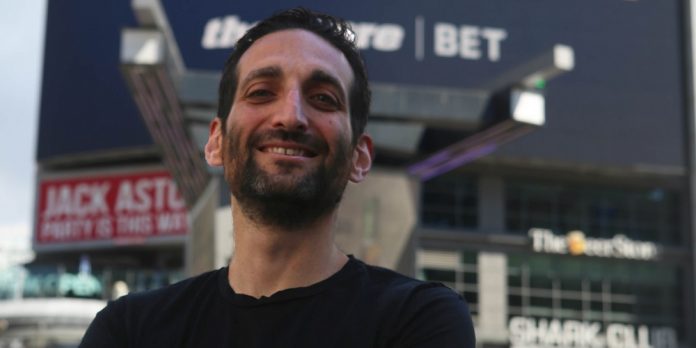Ahead of Ontario’s igaming market launch in April, theScore’s President and Chief Operating Officer, Benjie Levy, spoke to SBC Americas about the challenges the Canadian province could present to operators and how theScore will look to stand out in what is expected to be a competitive market.
SBC: First of all, it has been a couple of months since Penn National Gaming Inc completed its acquisition of Score Media and Gaming Inc. How has that acquisition impacted theScore and its plans for the Ontario market?
Benjie Levy: The Penn National acquisition has been fantastic. This isn’t just something that came up in the months leading up to the acquisition, we’ve known them for years. We’re market access partners. We did a deal with them in the summer of 2019 shortly before we even launched in New Jersey, a big multi-state market access agreement. That gave us an opportunity to really get to know the team there.
What made this such a great fit was that our cultures really aligned and our view of how you approach sports betting and online gaming, in particular, our integrated media and betting approach. There’s been great cultural alignment. We see the market in the same way, and the ability to attack the Ontario market – standing on the shoulders of Penn – makes us all the more excited about the opportunity that’s here in front of us.
SBC: theScore has already made significant progress towards launching in Ontario, obtaining GLI-33 certification, an RG Check igaming accreditation, and an internet gaming operator certificate of registration from the Alcohol and Gaming Commission of Ontario (AGCO). What is the biggest challenge theScore is expecting to face in this market?
Levy: Let me start by saying we couldn’t be more excited by the market opportunity here. If you look at Ontario in the context of North America, it would be the fifth-largest state or province by population. Ontario has come to market with a very competitive framework covering sports betting and igaming with a very reasonable tax rate, so we think this is going to be one of the most, if not the most, lucrative igaming jurisdictions in North America.
With that comes the flip side which is everybody is recognizing that opportunity – and so the market is going to be very competitive. That’s something we totally expect, they’re coming to compete with us on our home turf and we’re excited to play.
SBC: With the Ontario market set to launch igaming on April 4 this year, what projections do you have for this market and what are your thoughts on convincing bettors to eschew offshore operators in favor of a regulated operator?
Levy: We’re very excited about our product offering, in particular, our unique integrated media and betting approach. The market in Ontario has known theScore as a media brand since 1997 when we launched our original television network, since we launched our mobile app starting on flip phones in 2005, so the Ontario market knows us really well.
We’re very excited about our unique approach. Customers are going to see into our media app that they know and love a very deep integration of theScore Bet, and an integration that we’ve been building and working on over the last two years ever since we launched theScore Bet in New Jersey.
We had very basic integration of odds and simple betslips to where the product is now, it’s two years advanced, built on our own technology stack, and so we think we’ve got a very unique and compelling product offering layering on top of our brand and our audience in the province. We’re pretty excited about what we’re going to be able to bring to market here.
SBC: What will be the key differences, other than geographical, between the opening market in Canada and what is rapidly becoming an established market in the US?
Levy: I think the Canadian sports fan is a little bit different. I think we know the Canadian sports fan very well. We’ve been serving them for the better part of the last 25 years, so we’re excited to do that on our home turf.
In a lot of ways, it’s going to be very similar to the US. The difference here is that Ontario, and in Canada more broadly, has been a jurisdiction where the grey market has been operating for years so I think the public is perhaps a bit more accustomed to online gaming than what you would have seen in the US. But again, I think that’s a big opportunity for us as well.
SBC: Much has been made of theScore’s tech stack. What does it bring to the Ontario market that others don’t have?
Levy: Our whole approach to owning our tech stack is not specific to Ontario. When we got into the gaming business in 2018 when PASPA fell, our vision was to always to own our own technology stack and as a digital media company and a digital technology company, that’s one of our core differentiators.
People talk about tech in the context as while you’re going to own it, you’re going to have higher margins, but it’s ultimately about being able to create that best experience for your consumers.
Nobody really has sat down with the North American market in mind and a blank sheet of paper and said “this is what a gaming platform should be, this is how a gaming platform should integrate with a media platform”. And we’ve now had the opportunity to do that over the past two-and-a-half years. We think that’s going to give us a significant edge as we launch on our home turf.
SBC: What is up next for theScore following the Ontario market launch?
Levy: We’ve got a lot of work ahead of us. Ontario is an exciting market. It’s going to be one of the biggest online gaming markets in North America. So there’s going to be work to do out of the gate to launch, and then there’s going to be continued work as we continue to develop our product and serve our audience over time.
More broadly, we have a technology roadmap that we’re continuing to build and execute against. Later this summer, we’re going to be launching that last element, our in-house risk and trading platform and our in-house trading team led by Patrick Jay.
We’re working on the ultimate migration of the Barstool Sportsbook onto our technology platform. Thinking even more broadly about what we’re going to be able to do with the Penn organization omnichannel technology perspective, as you start to think about how customers move from retail to digital and from digital to retail, all that on a unified technology stack, we’re very excited about what the future holds in that regard.














